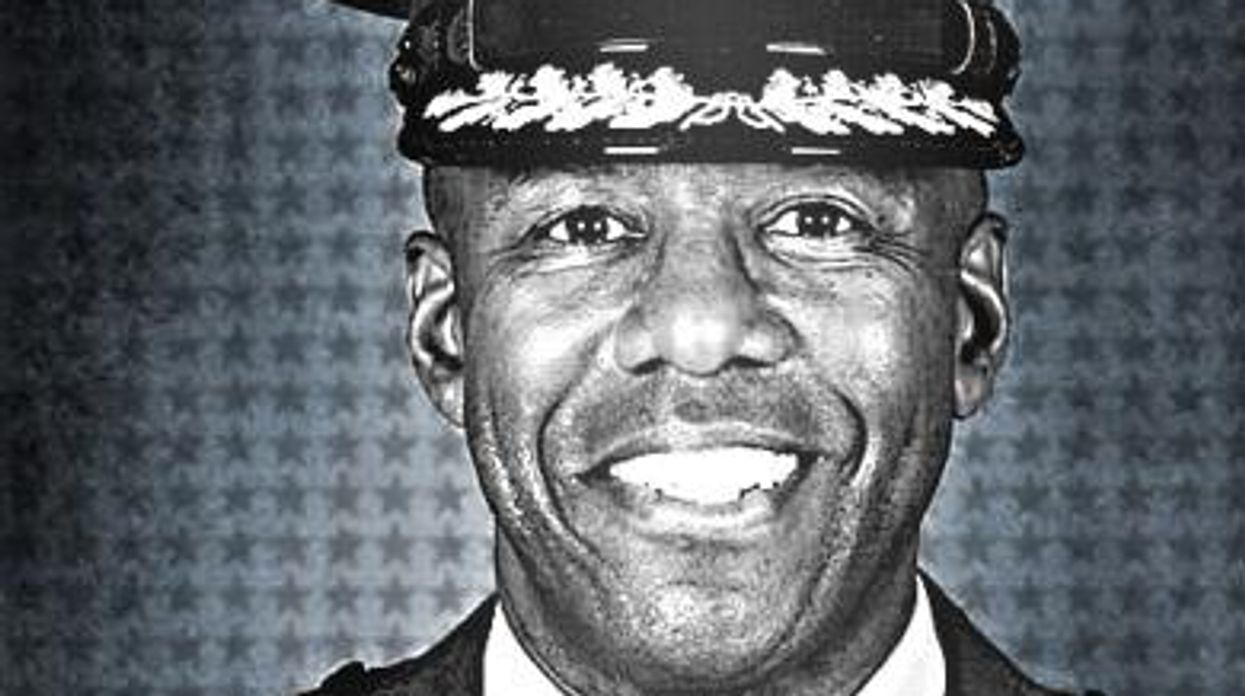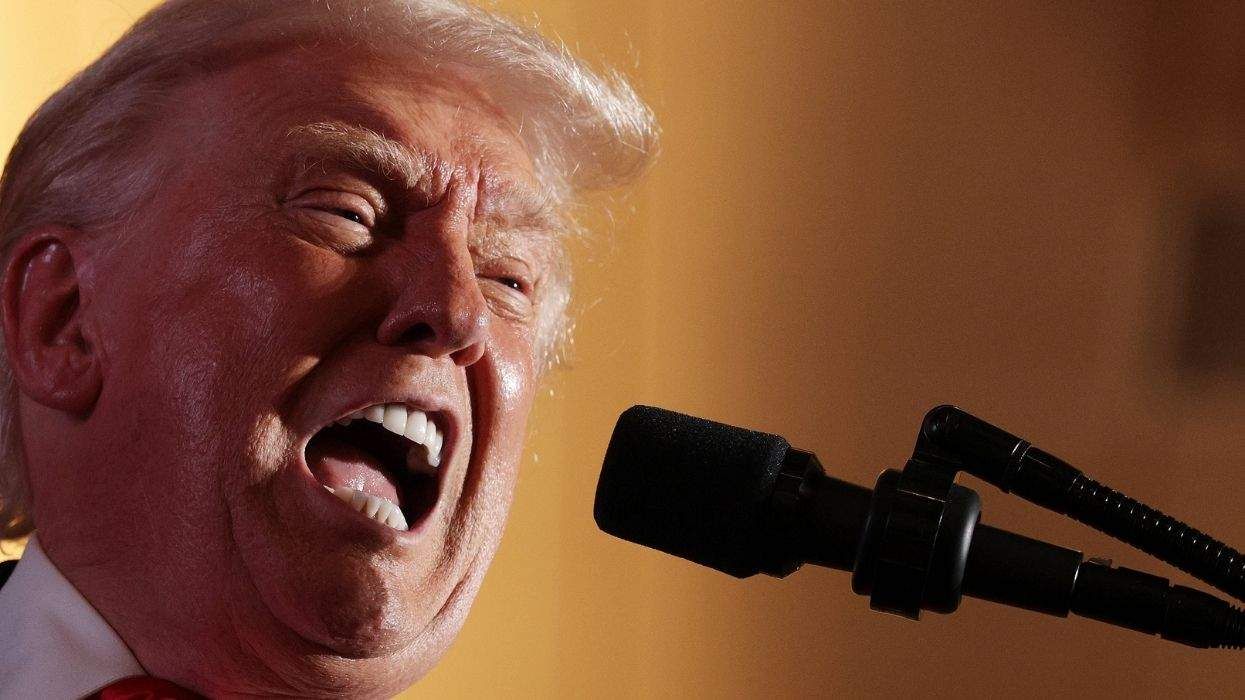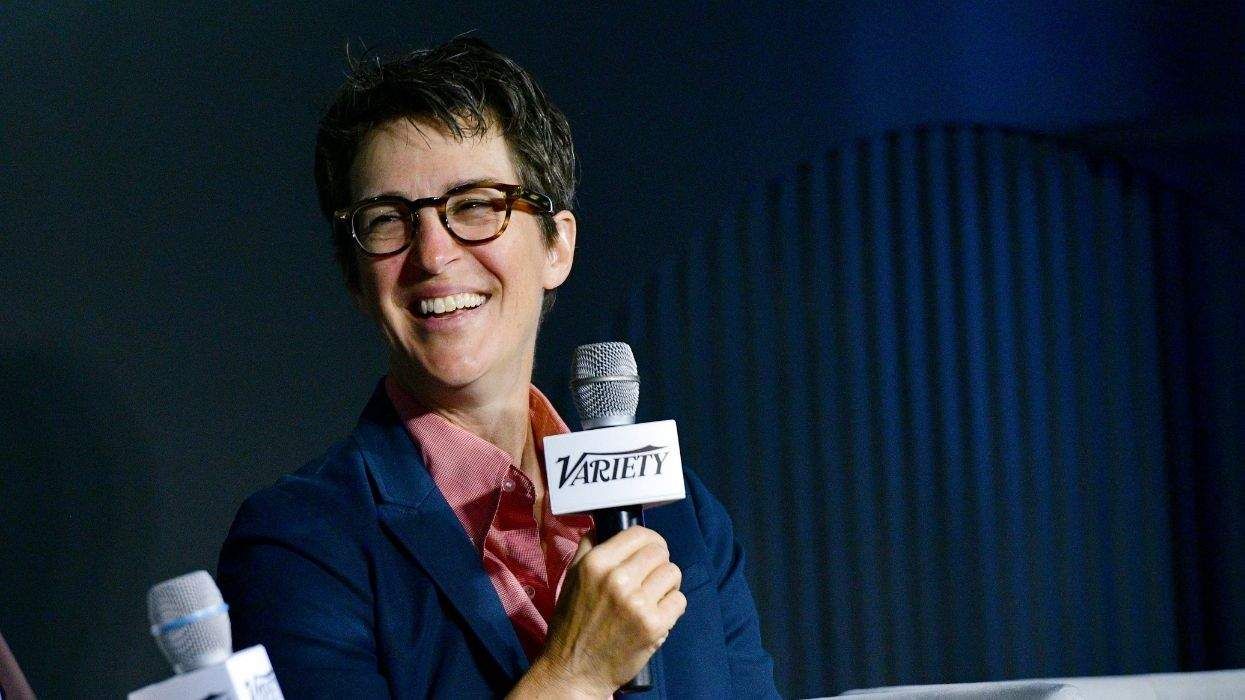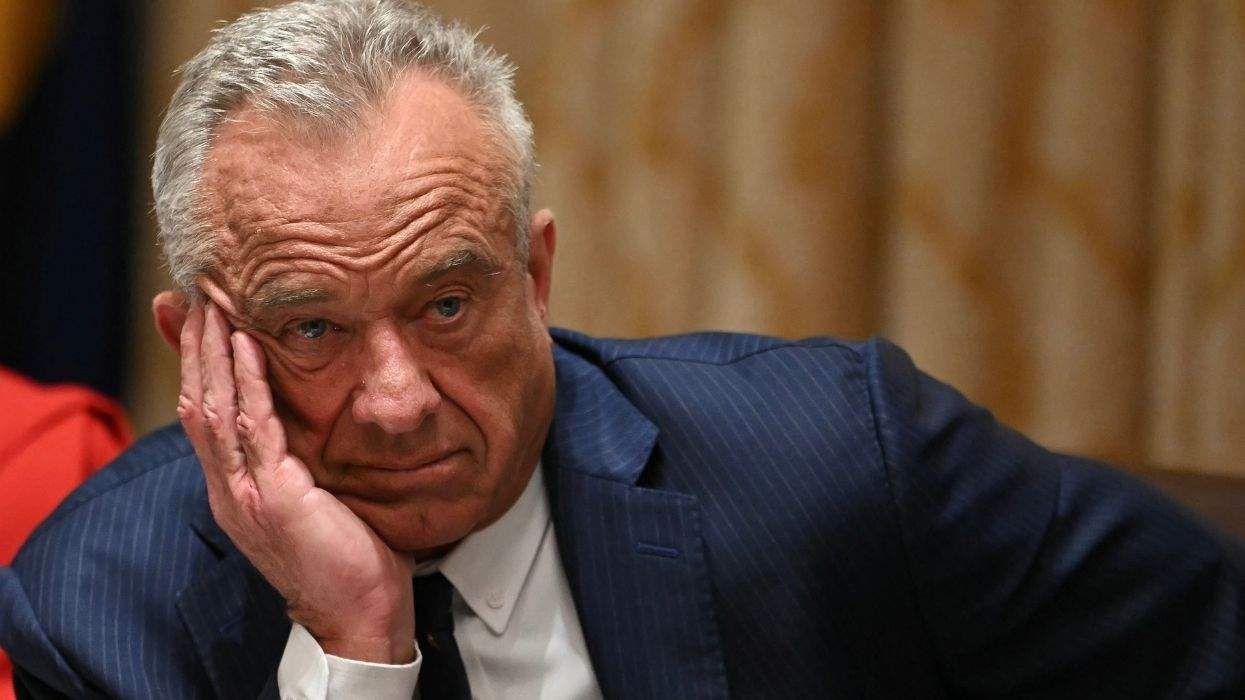CONTACTAbout UsCAREER OPPORTUNITIESADVERTISE WITH USPRIVACY POLICYPRIVACY PREFERENCESTERMS OF USELEGAL NOTICE
© 2025 Equal Entertainment LLC.
All Rights reserved
All Rights reserved
By continuing to use our site, you agree to our Privacy Policy and Terms of Use.
We need your help
Your support makes The Advocate's original LGBTQ+ reporting possible. Become a member today to help us continue this work.
Your support makes The Advocate's original LGBTQ+ reporting possible. Become a member today to help us continue this work.
The Senate Armed Services Committee held a confirmation hearing Thursday for Clifford Stanley, a retired Marine general who has been nominated as undersecretary of Personnel and Readiness within the Department of Defense -- the position that oversees the "don't ask, don't tell" policy.
Stanley served 33 years in the U.S. Marine Corps, became the Marines' first African-American regimental commander, and retired in 2002 as a two-star general. Most recently, he was the president of Scholarship America, the nation's largest nonprofit, private-sector scholarship organization.
The military's gay ban was one of the main points of inquiry during the hearing, with Republican senator John McCain of Arizona, ranking member on the committee, providing the opening salvo on the issue.
"I would be remiss if I didn't mention a challenge that will probably fall under your purview, and that would be changing the DOD's homosexual conduct policy," McCain said during his opening statement, adding that he believes the current policy works. "I would be opposed to any attempt at modifying the existing policy in ways that will harm military readiness, placing upon the shoulders of military leaders an extra burden they simply do not need."
But Democratic senators were the only members of the committee who directed questions on the matter to Stanley, whose answers generally provided little insight into his personal views.
Sen. Carl Levin of Michigan, the committee's chairman, noted that Stanley would be responsible for implementing any change in the policy as well as studying the issue and making recommendations.
"Will you give us your best objective opinion on the question of whether or not 'don't ask, don't tell' should be maintained or dropped," asked Levin.
"Yes, senator, I will," Stanley answered.
Sen. Mark Udall of Colorado said that when President Barack Obama pledged last month to end the ban, he "sent a clear message to every service member in uniform -- straight and gay, regardless of service or rank -- that this change was coming."
Udall noted that some Congress members believe the president may include repeal of the policy among the recommendations he submits to Congress for next year's Defense budget.
"Is that a recommendation that you are prepared to support?" Udall asked.
"Senator, I clearly recognize that this is a very sensitive issue, it is an issue that I'm prepared to address if confirmed," Stanley answered. He listed a number of sources from whom he would seek input on the matter, including the Pentagon, Congress, the respective service chiefs in particular, and military experts.
"This is a very very challenging subject, but one that I know we can get our arms around," said Stanley. "I have to provide, based upon that input, a recommendation to Secretary Gates."
Sen. Roland Burris of Illinois questioned Stanley about how he would treat pending discharges, a potential reference to the fact that Defense secretary Robert Gates is looking into ways to soften implementation of the policy.
"They would fall under the existing statute, as I understand it," said Stanley.
Burris responded, "We're hoping we can get something done in this Congress with reference to that that would free up your hands, because we need all volunteers who will commit to serve this country of ours to be able to serve and to serve in a capacity that's honorable."
Nearly every senator expressed concern about the stress and strain of
conducting two wars on the troops and their mental health. Stanley
shared their concern and said that maintaining an all-volunteer force
was his "number 1" priority.
Following the hearing, Aubrey
Sarvis, executive director the pro-repeal lobby group Servicemembers
Legal Defense Network, said he was disappointed but not surprised that
Stanley wasn't more definitive in his answers on the policy.
"Obviously,
General Stanley's objective today was to get through the hearing and to be
confirmed without any controversy," Sarvis said.
Sarvis added
that he was not personally aware of Stanley's view on repeal but that
sources on the Hill have suggested he supports overturning the policy.
"I
understand that the president's views on 'don't ask, don't tell' were
discussed with Dr. Stanley and that they are in alignment," said Sarvis.
Sarvis
expects that the Senate's first "don't ask, don't tell" hearing will
take place next month, and he said congressional leaders were in the
process of figuring out how to formulate the panels.
"I think
they are talking about Secretary Gates or Admiral Mullen, so just those
two by themselves could be a full hearing," he said, adding that the
Senate may in fact hold more than one hearing.
If the president
does include repeal of the gay ban in his policy recommendations to the
armed services committees, Sarvis said that would happen around January
or February of next year.
"I think that would be a real viable
place for the president and for the Defense Department to indicate
clearly and precisely what they want to receive on 'don't ask, don't
tell,'" he said.
From our Sponsors
Most Popular
Bizarre Epstein files reference to Trump, Putin, and oral sex with ‘Bubba’ draws scrutiny in Congress
November 14 2025 4:08 PM
True
Jeffrey Epstein’s brother says the ‘Bubba’ mentioned in Trump oral sex email is not Bill Clinton
November 16 2025 9:15 AM
True
Watch Now: Pride Today
Latest Stories
Behind Marjorie Taylor Greene's latest push to criminalize gender-affirming care
December 10 2025 9:09 PM
Queer actor Wenne Alton Davis, known for 'Maisel,' 'Normal Heart,' killed in NYC car crash
December 10 2025 5:14 PM
‘Proud’ pro-LGBTQ+ Democrat flips Republican state House seat in Georgia electoral upset
December 10 2025 4:05 PM
Texas city votes to overturn LGBTQ+ antidiscrimination protections
December 10 2025 4:03 PM
Pornhub's spicy stats prove just how horny 2025 was
December 10 2025 3:30 PM
'Heated Rivalry' stars thank WeHo gay bar for 'tweeting about our butts'
December 10 2025 2:55 PM
Egypt and Iran tell FIFA to cancel World Cup Pride Match, calling it 'contrary' to values
December 10 2025 1:05 PM
Transgender and nonbinary youth whose pronouns are respected attempt suicide less: report
December 10 2025 12:00 PM
Rachel Maddow snags 2025 Walter Cronkite Award for excellence in political journalism
December 10 2025 9:00 AM
RFK Jr.’s health department is using religious freedom to strip transgender people of health care
December 09 2025 5:34 PM
D.C. appeals court keeps Trump’s transgender military ban in place despite one judge’s blistering dissent
December 09 2025 3:48 PM
True




































































Charlie Kirk DID say stoning gay people was the 'perfect law' — and these other heinous quotes